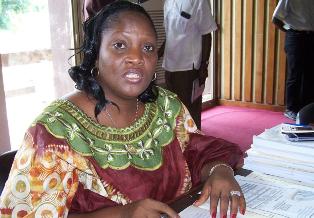Editorial: Repealing Repressive Media Laws: Pathway To Enhancing Free Expression & Democracy
The global media landscape, no doubt has been dramatically changed. The emergence of new media and tools such as the internet, cell phones and other devices has contributed immensely towards the global media revolution.
These new media and technologies have not only helped to empower individuals and media practitioners to enrich their news gathering skills, but have also created new frontiers. However, with these frontiers have come new barriers which have not only threatened free speech but also the life of journalists.
For instance, the Committee to Protect Journalists reports that, at least six journalists who worked primarily online (one of the new media) were killed in 2010. And in 2008, for the first time, more “online reporters,” were in jail than those working in traditional media. Thus the theme of this year’s observance of Press Freedom Day- “New Frontiers, New Barrier,” highlights this dramatically changed global media landscape.
Here in Liberia, the much touted free expression being enjoy today is only at the good will of the present administration, because there are repressive laws which are still on the statute books of the country that could be used to hinder free speech by a tyrannical regime. Such regime will be acting in the framework of the law. The three anti-press laws: criminal malevolence, criminal libel against the President and sedition remain very active on the statute books of Liberia.
Criminal Malevolence: A person has committed a first degree misdemeanor if he accuses any executive, authority, judicial authority, member of the legislature or any other public authority either by word of mouth, writing or by public broadcast of conduct which constitutes the commission of a crime, provided at the time of such accusation (a) the conduct charged is untrue and (b) the purpose of the actor is to injure the official in his reputation and undermine his official status.
Criminal libel against the president: A person has committed a first degree misdemeanor if he exposes in the public any writing, or make any public broadcast, in which he has accused the incumbent president of the republic of Liberia of conduct which constitute the commission of a crime, provided that (a) the conduct is untrue and the actor knows it to be untrue; and (b) the purpose of the actor is thereby injure the president in his reputation.
Sedition: A person, owing allegiance to Liberia has committed sedition, a felony of the second degree if (a) he advocates by word of mouth, writing or otherwise, sectionalism, countyism, parochialism or the like with the intent in so doing to incite the people to hostility, create disunity among the people and divide the nation….
These laws as surprising as their existence on the country’s statute books maybe, so is their applications in recent times. The New Dawn newspaper is the latest victim of the criminal malevolence law. This was in a case in which a junior level civil servant had chosen to seek redress for alleged injuries through criminal action.
[bsa_pro_ad_space id=1]
The criminal libel law against the president had also been applied in recent times against the Plain Truth newspaper but the case was abandoned thereafter. In fact the three anti-press laws have been used in recent times under the Ellen Johnson-Sirleaf administration, which is considered as the friend of the press. That is why we at The New Dawn newspaper support the call by former Labor Minister Tiawon Gongloe a few days ago for the repeal of these anti-press laws because they threaten free expression.
Like Gongloe, we believe that these repressive laws were enacted during the period in Liberian History when government did not exist by the free will and consent of the people; and the process of governance were largely in total disregard to the views of the governed. We also share the view of the former Solicitor General that these three anti-press laws still serve as hindrance in the efforts of the Liberian press to contribute towards the strengthening of democracy in the country.
While it is true that Article 15 of the Constitution relating to freedom of speech and of the press, sub section (e) provides: “This freedom may be limited only by judicial action in proceedings grounded in defamation or invasion of the rights of privacy and publicity … We believe that civil actions should be considered by government officials, members of the public or business entity in seeking redress and not these draconian laws.
We further believe that on the observance of the 20th World Press Freedom Day, members of the national legislature and the executive branch of government should take a look at these repressive press laws to see how best they can be repealed for the enhancement of free speech and democracy. The growth of Liberia’s infant democracy relies strongly on a free and responsible press. It is the media that scrutinize when governments repress their people and shield themselves from scrutiny. And let’s we forget that a free press is among the most powerful vehicles for exposing misdeeds and upholding public trust.
Happy World Press Freedom Day!




















